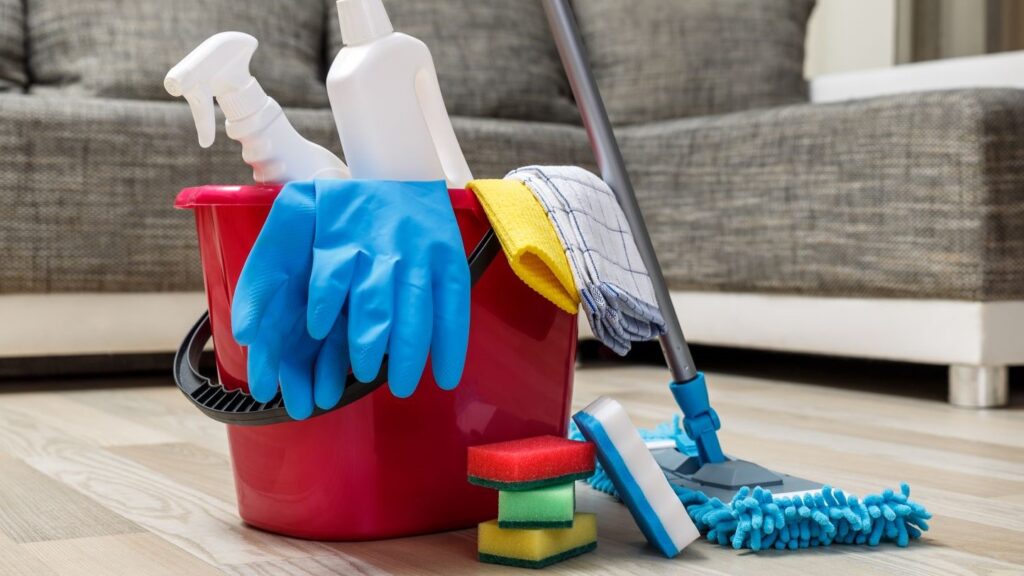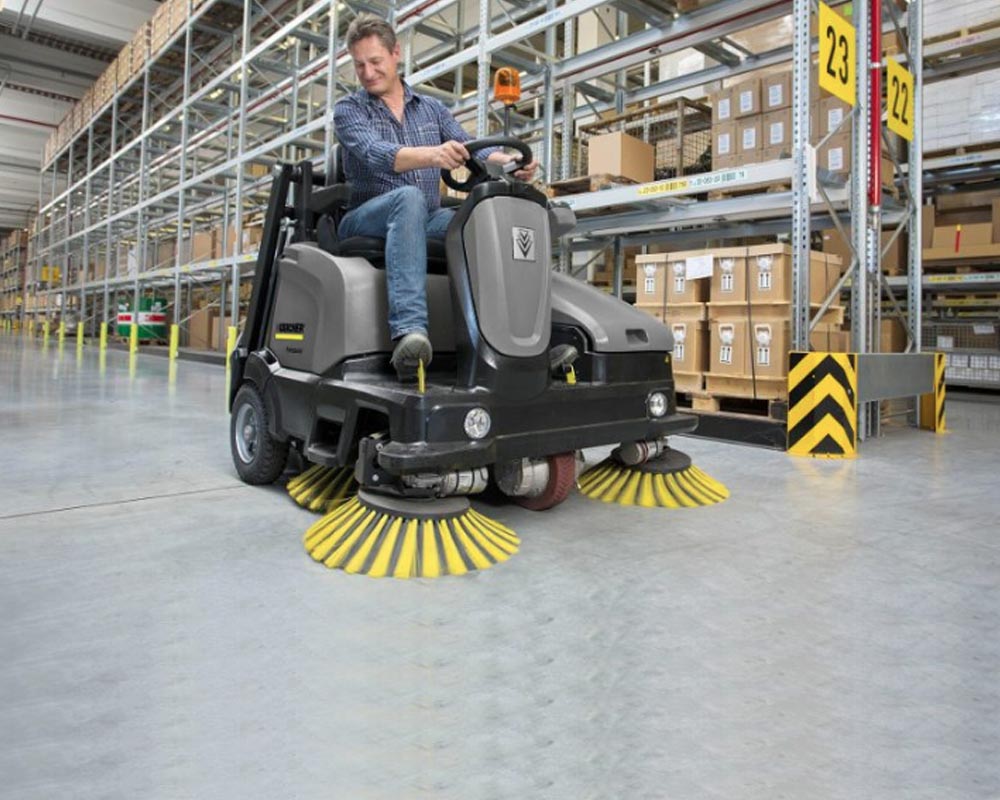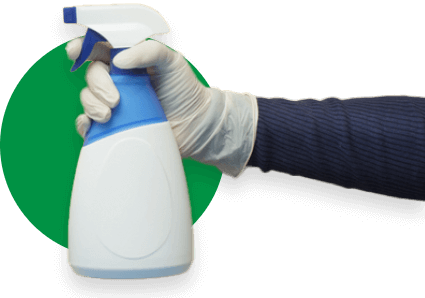As with all teams and organizations, management is essential. This also holds true for any cleaning staff. It is essential to have a cleaning crew that is led by strong and reliable leadership (business owners or managers). Now, you may be thinking, “That sounds great, but what does it look like?” Luckily, there are tips you can follow to properly manage your cleaning staff.
While it does require time, effort, and communication from each member, it is well worth it. The results of a well-managed cleaning staff speak for themselves. Typically, crews like these work efficiently and collaboratively. In this article, we will provide an expert guide on proper cleaning staff management.
Common Struggles Involved in Managing Cleaning Staff
Unfortunately, there can be a plethora of struggles involved in managing cleaning staff. Chances are, you may have previously or will experience some of these issues. However, you should not be completely discouraged, as mistakes do happen. Instead, you can view them as steps toward improvement and chances to learn.
One of the most common struggles a cleaning team can face is disorganization. In most cases, this will occur when a plan was not thoroughly constructed or explained. When this happens, crew members may not know what tasks need to be completed or who it was assigned to. The result is discombobulation and inefficiency. While this can be fixed, consistent disorganization can lead to poor performance and reputation.
Moving on, you may not have all the necessary cleaning supplies. Of course, this can inhibit your staff from completing their tasks. Now, you must take extra time getting all the materials or postpone altogether. Similar to the previous point, this may lead to negative reviews and a lack of customer retention.
Finally, there can be issues with cleaning staff members themselves. Although it does not happen often, crew members may miss mandatory dates without telling you. An undermanned staff can not work as efficiently as the remaining members will have to pick up extra work. In addition, you may face employee turnover. Managing a cleaning team can be difficult if you are constantly changing members. Later in the article, we will discuss ways to improve retention.
In general, management struggles tend to stem from a lack of proper communication. Those in leadership positions should make an effort to instill and promote an amicable and collaborative environment.
7 Expert Tips For Managing Cleaning Staff
As stated previously, managing an effective cleaning staff requires effort and collaboration. However, there are tips that business owners can implement to improve the management process.
It should be noted that each cleaning crew is different, and not all strategies work perfectly. Therefore, you have the responsibility to communicate and understand all cleaning staff members. By doing so, you can learn which management strategies would work the best.
Implement a Clear Chain of Command
To start, there must be a clear and straightforward chain of command. Of course, those at the top must assume greater amounts of responsibility. It is their duty to create a schedule, delegate cleaning tasks, and ensure that they are being done properly.
However, this does not mean that they have full autonomy over the entire decision-making process. A great manager will listen to all staff members. That said, it is their job to make final calls, and a clear chain of command helps ensure that those decisions are followed.
In addition, individuals atop the chain of command can assign intensive tasks to more experienced cleaning crew members. Lastly, a manager must excel at conflict resolution. Although no one wants them to happen, coworkers will have arguments. As a manager, it is your responsibility to provide guidance and ease tensions.
Have an Effective Training and Skill Development Strategy
Along with a clear chain of command, all staff members should complete a thorough and detailed training process. Untrained and unqualified individuals are a safety risk to themselves and others around them. Therefore, you must teach them proper cleaning techniques, items to use, and safety precautions.
Moreover, you can focus on skills such as customer service. In general, training plans should ensure that all members are knowledgeable and qualified. With consistent skill development efforts, cleaning tasks can be completed effectively and efficiently. This can significantly boost customer reviews and retention.
Lastly, training should not be a one-time only occurrence. Excellent cleaning staff will implement routine refreshers.

Establish Clear Expectations and Performance Standards
Moving on, you must establish a standard of excellence and cleaning service quality. As a manager, you should not encourage poor performance. If so, your quality of work may stagnate or slowly decline. Instead, you need to hold all staff members accountable with positive reinforcement.
In particular, try focusing on senior cleaning crew members. If they agree to the standards set, other employees may listen as well. Of course, you should keep yourself to the same degree.
An effective way to ensure high-quality work is inspection checks. Also, you can provide fair and constructive employee feedback. In addition, you can provide incentives to those who meet expectations and performance standards. Positive reinforcement can make employees feel appreciated and valued.
Ensure Efficient Staff Scheduling
Also, you must have efficient staff scheduling. A proper schedule will include cleaning checklists and who tasks are assigned to. Furthermore, it should be split between daily, weekly, and monthly cleaning tasks. To reduce any potential confusion, the schedule must be easy to follow. Consider involving staff members in the schedule-making process. By doing so, individuals can choose tasks relative to their experience and skill level.
A lack of efficient staff scheduling can lead to a variety of problems. For example, it can lead to disorganization and inefficiency. In addition, a lack of cohesion can increase the chances of employee turnover.
Workload and Staff Requirements
A key component of a cleaning schedule is workload. You should ensure that all tasks can be realistically completed on time. Overstressing staff members can significantly decrease overall morale and quality of work.
Staff Time and Punctuality
Moving on, you should focus on time management. Understandably, this is an important standard to maintain, as all staff members should be on-time. You can help ensure promptness by maintaining a level of flexibility and employee rotation.
Absences and Vacations
It is perfectly reasonable for employees to want to take vacations. Before they do, make sure that they tell you beforehand. By doing so, you can adjust accordingly and remain on a proper schedule. Communication is an essential facet of a strong cleaning staff.
Monitor and Maintain Supplies and Equipment
You must perform routine and proper supply management. Without cleaning supplies, your crew will not be able to provide services. Therefore, it is important to have cleaning checklists and an inventory count of all your cleaning supplies. To save money, consider purchasing supplies in bulk.
Furthermore, you should not buy different types of the same product unless necessary. Lastly, materials that are well-organized will be easier to locate.



Ensure Health and Safety Compliance
Great cleaning staff management will emphasize the importance of health and safety guidelines. In addition to following product instructions and safety precautions, cleaning crews should abide by OSHA (Occupational Safety and Health Administration) regulations. These are put in place to protect workplace employees. This includes the use of protective wear and proper item handling.
With cleaning services, you may use products that include harmful chemicals. Therefore, it is mandatory that you conduct cleaning services with the highest level of safety and care.
Provide Continuous Improvement for Staff Retention
Without staff members, tasks can not be completed properly or efficiently. So, it is important to provide rewards, incentives, and approval for high-quality work. This can boost morale and improve employee retention. Understandably, you don’t want to lose great staff members.
A great way to reduce employee turnover is to provide greater compensation and benefits to those who stay tenured. In addition, you can provide career growth opportunities and employee satisfaction surveys.
Outsourcing Cleaning Services for Staff Management Ease
In certain cases, it may be best to hire the services of a commercial cleaning company. By doing so, you will not have to worry about cleaning and time management problems. Dallas Janitorial can provide exceptional work in surrounding cities or industries.
FAQs About Managing Cleaning Staff
How do you keep cleaning staff motivated?
You can keep cleaning staff motivated by providing rewards and incentives for excellent work. In addition, you can promote a culture focused on communication and collaboration.
What is the best way to leave a tip for a hotel housekeeper?
The best way to leave a tip for a hotel housekeeper is to leave cash with a note attached on visible surfaces like desks or nightstands. While it is best to tip daily, you can tip a large amount at the end of your stay.
How do you train a cleaning staff?
You can train a cleaning staff by using employee handbooks and implementing training schedules. Furthermore, you should emphasize the use of safe product handling. Lastly, you can provide opportunities for practicing skills.
Learn More With Dallas Janitorial Services
At Dallas Janitorial, we take it upon ourselves to provide superior commercial cleaning company services. As stated in the article, we maintain a level of excellent performance standards. To schedule an appointment, please contact us at 214-778-3629.


